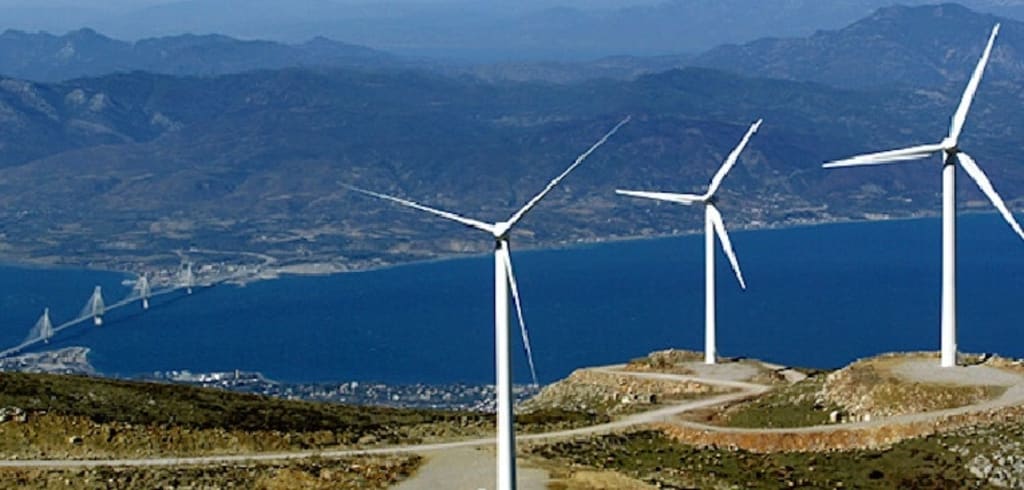
Energy and electricity industries have benefited the most from the present crisis. Bills are increasing for the general public, while energy companies reap billions. Energy firms in Greece must now pay the government 90% of their disproportionate crisis earnings. The conservative administration intends to utilize it to fund a cost-of-living adjustment and to pay 60% of residents’ increased power expenditures.
Electricity and gas costs are soaring across Europe, putting a huge strain on vast segments of the population. Energy prices have grown dramatically in Greece in recent months as well.Many individuals are struggling to make ends meet since the financial and economic crisis, with one in three living on the verge of poverty. The conservative administration must ease the population’s burden due to inflation. Increased power rates will now be refunded up to 600 euros to citizens. This implies the state will fund 60% of the additional power expenditures. People earning up to 45,000 euros per year are eligible. Air conditioners, refrigerators, and other appliances that save energy will also be supported.
Energy corporations in Greece made almost 90% of the crisis earnings.
The 2.5 billion euro scheme will be funded by a special levy on energy corporations’ excess earnings. Profits that exceed the previous year’s average values will be taxed at a rate of 90%. Prime Minister Kyriakos Mitsotakis remarked in a televised address on the rescue package.He also stated that the government was aiming to decouple energy pricing from people’s power bills. At the beginning of April, the prime minister advocated for this action at the EU level. Spain and Portugal are also proponents of decoupling; they have campaigned for an EU-wide price ceiling on power costs. Despite this, the conservative ruling party Nea Dimokratia is neoliberal, having already lowered taxes on business earnings and real estate. Furthermore, Prime Minister Mitsotakis leans toward the liberal economic section of the party.
26,000 houses were shut off from electricity.
Due to nonpayment of bills, Greek electrical suppliers began shutting off power to over 26,000 families in late April. This has increased the government’s workload. The conservative administration began subsidizing poorer households’ power costs as early as August 2021, and the subsidies were boosted again in the fall.
The heating subsidy now covers 1 million homes, up from 300,000 last year. A monthly subsidy of 42 euros is also available for everyone’s power payment. This payment is much larger for persons living in subsidized housing, at 180 euros per kilowatt hour. However, because these steps did not give enough assistance to the people, the government is currently implementing this relief package.
Energy businesses’ surplus earnings are also taxed in Italy.
Italy proposes to take a special tax on energy corporations’ excessive earnings in order to alleviate the populace.Former ECB chairman Mario Draghi is the country’s president, and he is a conservative. Companies must pay a quarter of their extra earnings. The extra profits over the last six months compared to the same period previous year are at the heart of the equation. This will assist 28 million Italians, among others. They will be compensated with 200 euros to cover their higher energy expenditures.
Italy proposes to take a special tax on energy corporations’ excessive earnings in order to alleviate the populace.Former ECB chairman Mario Draghi is the country’s president, and he is a conservative. Companies must pay a quarter of their extra earnings. The extra profits over the last six months compared to the same period previous year are at the heart of the equation. This will assist 28 million Italians, among others. They will be compensated with 200 euros to cover their higher energy expenditures.
Italy proposes to take a special tax on energy corporations’ excessive earnings in order to alleviate the populace.Former ECB chairman Mario Draghi is the country’s president, and he is a conservative. Companies must pay a quarter of their extra earnings. The extra profits over the last six months compared to the same period previous year are at the heart of the equation. This will assist 28 million Italians, among others. They will be compensated with 200 euros to cover their higher energy expenditures.





Comments
There are no comments for this story
Be the first to respond and start the conversation.